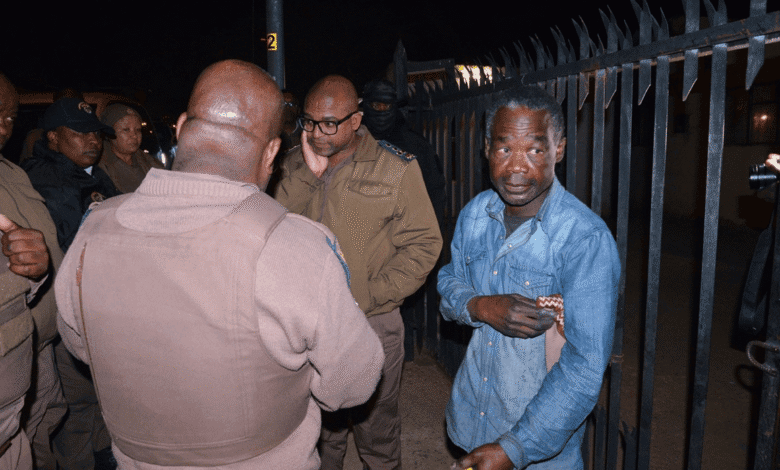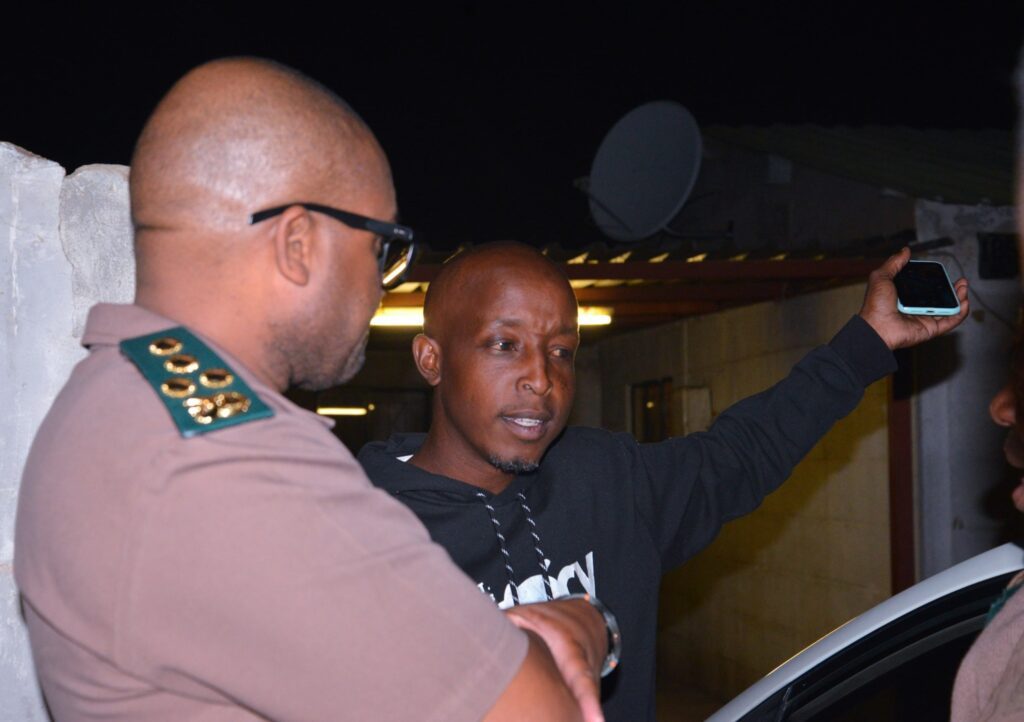Month: August 2025 Update – Commissioner Thobakgale Calls on Guardians to Step Up for Parolees’ Reintegration

🔑 Why This Matters
Every year, thousands of parolees re-enter South African communities after serving time in correctional facilities. Their successful reintegration depends not only on the Department of Correctional Services (DCS) but also on the support of guardians, families, and communities.
Month: August 2025, National Commissioner Makgothi Thobakgale highlighted this responsibility during a surprise parole monitoring operation in Mamelodi, Gauteng, where he expressed concern over neglect and lack of accountability among some guardians.
This story is more than just a news update—it’s a call to action for parents, guardians, and communities to play an active role in rebuilding safer, healthier neighborhoods.
📅 Context: Women’s Month, Parole, and Community Safety
The Mamelodi operation wasn’t random. It was part of the nationwide parole monitoring campaign linked to Women’s Month, with a strong focus on offenders convicted of Gender-Based Violence and Femicide (GBVF).
The campaign aims to:
- ✅ Ensure parolees are following strict conditions
- ✅ Protect vulnerable community members (especially women and children)
- ✅ Reduce reoffending rates, which remain a concern in South Africa
- ✅ Encourage community involvement in crime prevention
🗣️ Thobakgale’s Key Message to Guardians
Commissioner Thobakgale stressed that parole is not a free pass, but a structured system designed to encourage rehabilitation and accountability.
Here are the main points from his statement:
- Guardians must provide consistent oversight
- Know where parolees are at all times
- Ensure they do not violate curfews or other restrictions
- Avoid defensiveness
- Parents and guardians should not shield parolees from consequences
- Instead, they should guide them to correct behavior
- Community reporting is vital
- Members of the public should report non-compliance without fear
- Reporting helps prevent crime and protects potential victims
- Partnerships make reintegration possible
- Reintegration is a shared responsibility between government, families, and communities
📊 Understanding Parole in South Africa
To better understand the commissioner’s concerns, it helps to look at what parole is and why guardians matter.
What is parole?
Parole is the conditional release of an offender before the completion of their full sentence. It is not automatic—it depends on good behavior, rehabilitation progress, and readiness to reintegrate.
Common parole conditions include:
- 🚫 Not leaving home at night (curfews)
- 🚭 Staying away from alcohol or drugs
- 🔄 Attending rehabilitation or counseling programmes
- 📍 Reporting regularly to parole officers
- 🚔 Avoiding any criminal activity
Why guardians are important
Parolees live in communities, often under the care of family members or guardians. Their role includes:
- Daily monitoring
- Emotional and moral support
- Helping parolees find work or study opportunities
- Encouraging compliance with legal obligations

🚨 Challenges in Guardianship Oversight
While the system looks effective on paper, real-world challenges exist:
- Lack of awareness – Some guardians do not fully understand parole conditions.
- Overprotectiveness – Parents may defend parolees even when they clearly violate rules.
- Neglect – In some cases, guardians lose track of parolees, failing to enforce curfews.
- Social stigma – Families often struggle with the community perception of living with a parolee.
- Economic pressures – Many guardians face unemployment or poverty, making it harder to provide structure and support.
📖 A Guide for Guardians: How to Support Parolees Effectively
If you’re a parent, sibling, or guardian of a parolee, here are practical steps to ensure successful reintegration:
1. Learn the parole conditions
📌 Make sure you understand the specific restrictions. Ask the parole officer to explain anything unclear.
2. Establish structure at home
🕒 Create a daily routine that keeps the parolee engaged, whether through work, studies, or skills training.
3. Encourage positive activities
🎓 Help them find opportunities for education, learnerships, or volunteering. Keeping parolees busy reduces the temptation to reoffend.
4. Communicate openly
💬 Build trust by talking about challenges, temptations, and triggers. Open dialogue helps prevent relapses into old behaviors.
5. Involve community resources
🏫 Connect parolees with NGOs, SETAs, or community centers that offer skills programmes and psychosocial support.
6. Balance support with accountability
⚖️ Be compassionate but firm. Allowing violations only sets them up for failure.
🧑🤝🧑 Role of Communities in Reintegration
Communities play a double role:
- Support system – Encouraging parolees through opportunities (jobs, mentorship, skills training).
- Watchdog role – Reporting violations, ensuring safety, and reducing crime risks.
Building a culture of accountability and compassion is key.
🌍 Bigger Picture: Why Reintegration Matters for South Africa
South Africa faces high crime rates, much of it linked to repeat offenders. Proper reintegration of parolees can:
- Lower reoffending rates
- Improve community safety
- Reduce prison overcrowding
- Support national goals of rehabilitation over punishment
This is why guardians, communities, and DCS must work together.
📢 Final Takeaway
Commissioner Makgothi Thobakgale’s August 2025 message is clear: guardians and communities cannot step back from their role. Successful parole is not just about monitoring—it’s about guidance, discipline, and opportunity.
For South Africa to move toward safer neighborhoods and stronger rehabilitation, everyone has a part to play:
- DCS provides oversight
- Guardians offer structure
- Communities ensure accountability
- Parolees must take responsibility for change
✅ Quick Checklist for Guardians (Shareable Resource)
- 🔍 Understand parole conditions
- 🏠 Provide structure and supervision
- 🎓 Encourage work, learning, and volunteering
- 🗣️ Maintain open communication
- 🛡️ Balance compassion with accountability
- 📞 Report violations when necessary

